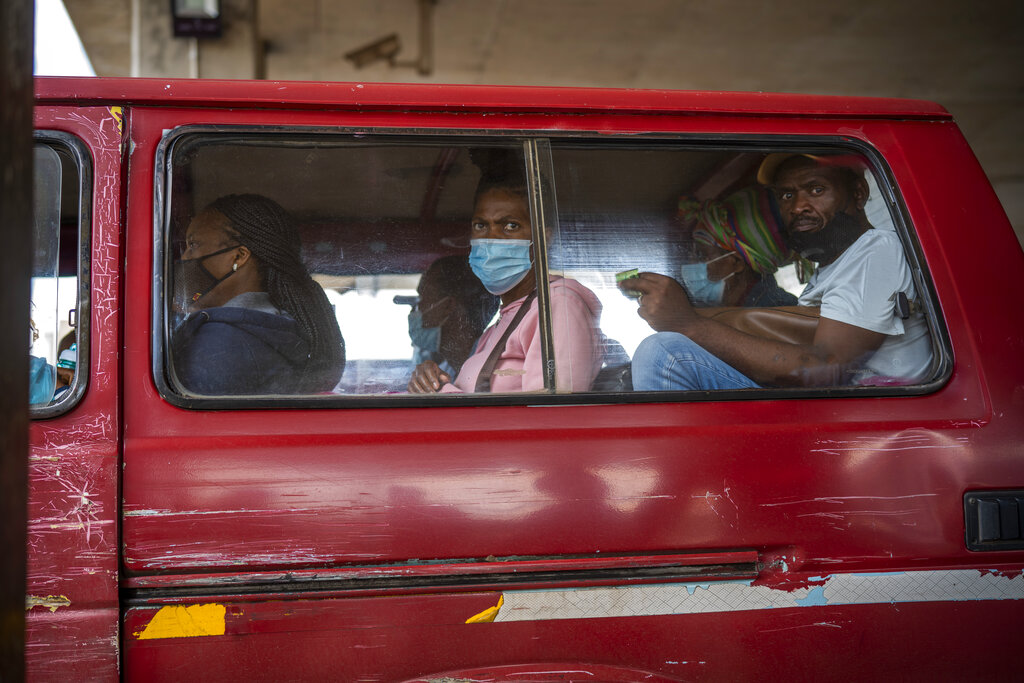Should Masks Return to Prevent Spread?
ADF STAFF
As COVID-19 case numbers declined in recent months, so did the number of people wearing masks.
Encouraged by a significant drop in COVID-19 deaths, governments across the African continent followed suit, discarding their mask mandates.
In other regions of the world, however, continuing mutations of COVID-19 variants are sparking new infection clusters.
The threat of multiple variants spreading at the same time, which experts call a “variant swarm” or “variant soup,” has led some health professionals to recommend a return to mask-wearing as a preventive measure to limit the spread of the disease. Of particular concern is the potential spread in hospitals, health centers, pharmacies and enclosed public spaces such as busy transportation hubs.
Epidemiologist Dr. Eric Feigl-Ding, co-founder of the World Health Network, has been beating the drum for a return to preventive measures.
“Let’s #BringBackMasks & bring in ventilation & air disinfection,” he tweeted on October 26.
Since the World Health Organization declared an international emergency in 2020, preventive medicines and treatments for COVID-19 have helped reduce hospitalizations and deaths.
In fact, COVID-19 deaths reported in October were the lowest since March 2020.
In most countries on the continent, cases have declined since the omicron-fueled fourth wave hit its peak in early January 2022.
Nigeria, the most populous country in Africa, is one of the few with a mask mandate still in place.
On August 8, Presidential Steering Committee chairman Boss Mustapha reminded citizens that masks still were required indoors and on public transportation.
“Keep in mind that continuously wearing a face mask in certain public situations can help protect those who have compromised immune systems or are high-risk,” he said to reporters during a government function.
“Proper wearing of face masks will reduce the probability of transmission between an individual who is infectious and one who is susceptible to infection and helps protect those with a high risk of infection and severe disease.”
South Africa, the continent’s hardest-hit nation, repealed its restrictions on June 23. Masks were no longer mandatory indoors in public places.
At the time, the Africa Centres for Disease Control and Prevention (Africa CDC) noted that countries were at different stages of coping with COVID-19 and advised the use of data-driven strategies.
“We also expect that the protocols will not all be the same during this stage of the pandemic,” Africa CDC acting director Dr. Ahmed Ogwell Ouma said during a briefing.
“We have encouraged them to use their own data, the evolving situation on the ground and their capacity for surveillance … to provide any adjustments.”
Some of the experts who criticized South Africa’s mask mandate said the restrictions were being ignored and were difficult to enforce.
Prof. Alex van den Heever, chairperson of Social Security at the Wits School of Governance, agreed with ending the mandate but emphasized the value of masking as a personal choice.
“Going forward, people who feel at risk, have comorbidities and are concerned should continue to be very wary about public spaces and protecting themselves,” he told SABC News TV. “[They] can continue and should continue to wear masks when they feel unsafe. If they go to restaurants or crowded settings, try to be in well-ventilated venues.
“I think going forward we are going to be living with this virus as we do with many others. It’s now endemic. We’re all going to get infected multiple times.”


Comments are closed.